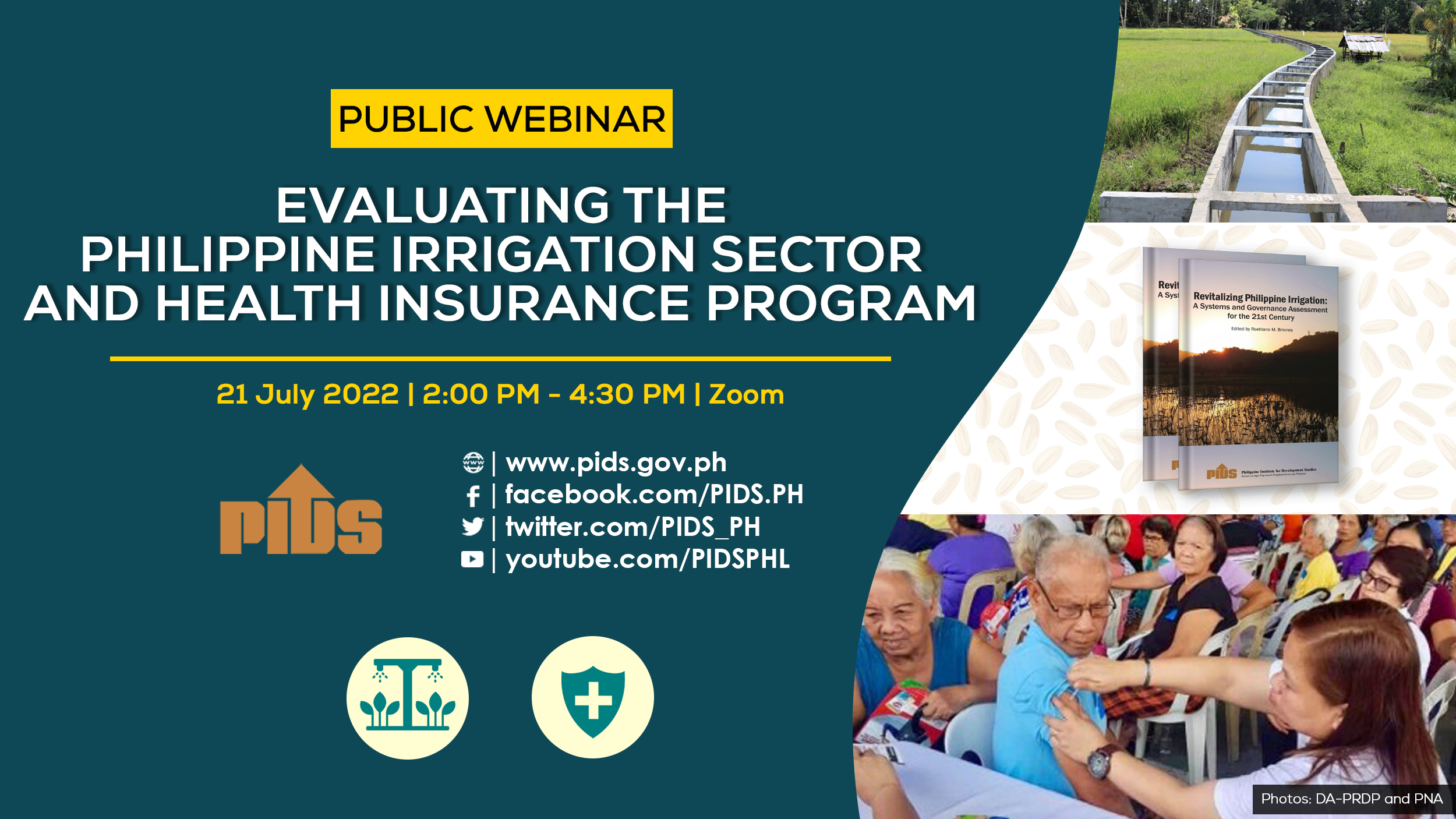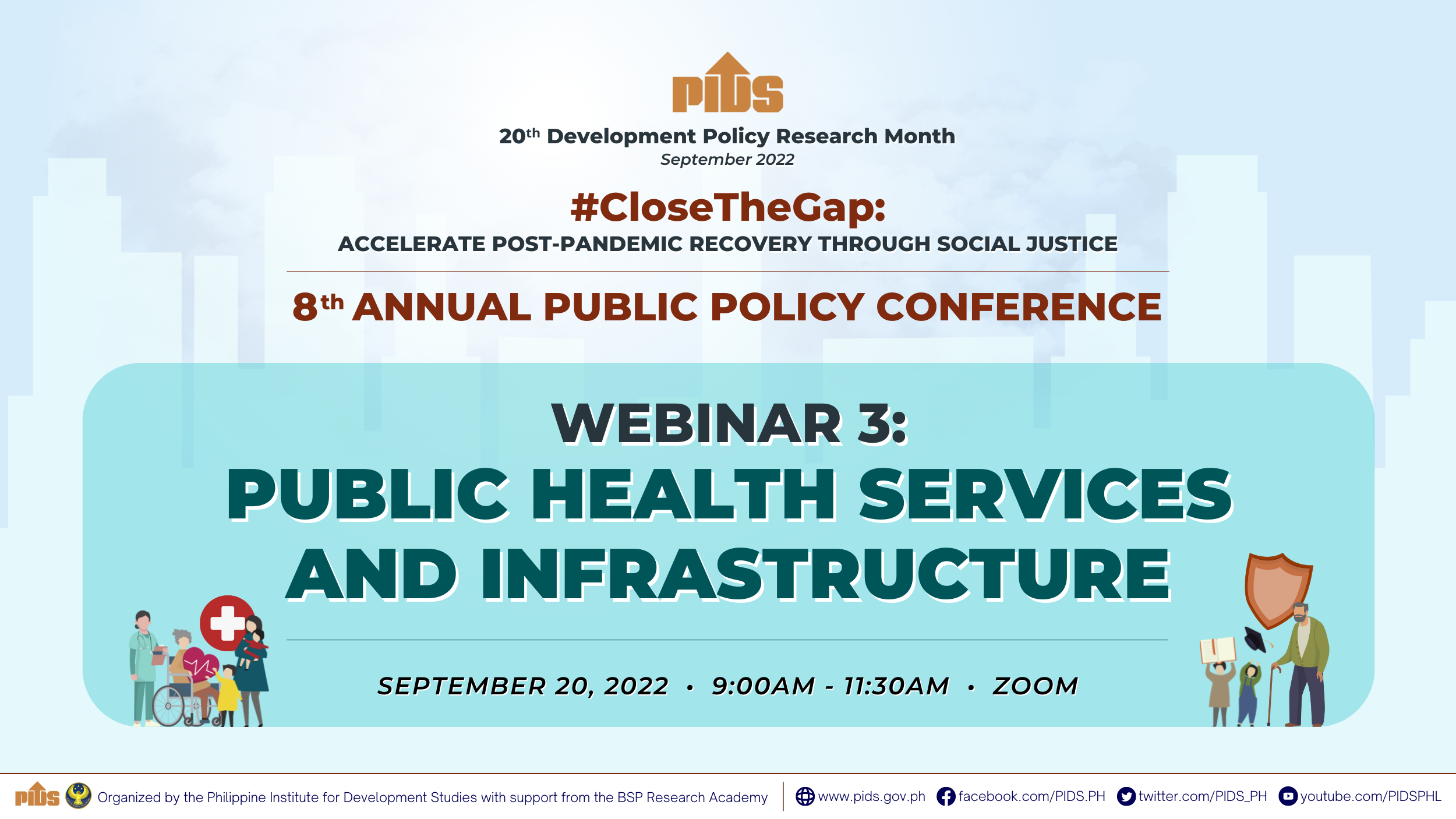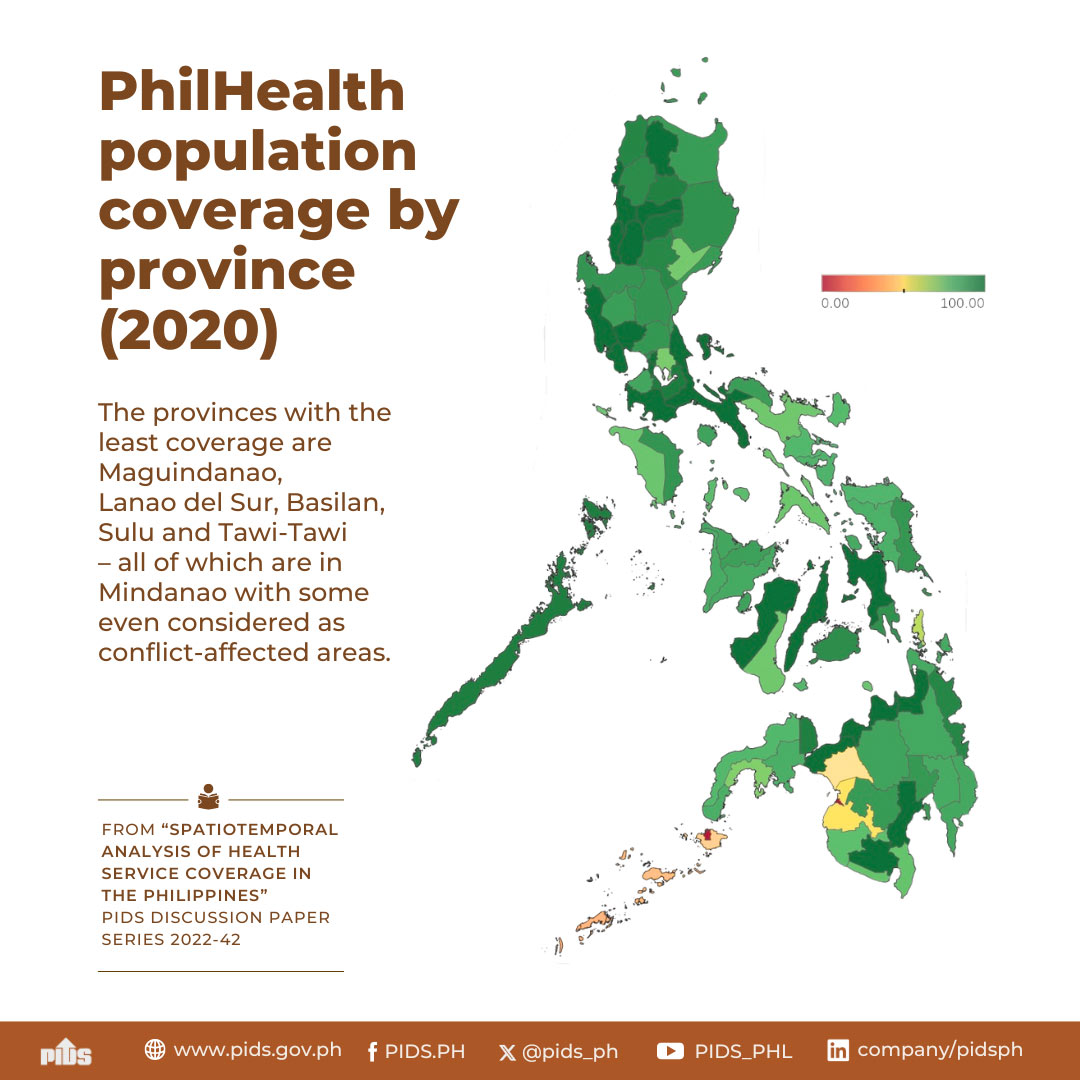
State think tank Philippine Institute for Development Studies (PIDS), in coordination with the Cordillera Studies Center, University of the Philippines (UP) Baguio, will be hosting a policy research form on Human Capital: Health, Education, and Building Resilience at the Abraham Sarmiento Hall, Alumni Center, UP Baguio on April 6, Wednesday.
Two studies will be presented at the seminar. One is on the results of an impact evaluation study on the Department of Education's (DepED) School-Based Feeding Program to be presented by PIDS Consultant and Pulse Asia Research Director Ana Maria Tabunda. The other paper is on managing risks and building resilience by PIDS President Gilberto Llanto.
As the country looks forward to weighing candidate profiles in the upcoming elections, the subject of evaluating government policies is equally critical to the pursuit of good governance. The School-Based Feeding Program is an intervention developed by the national government to weaken the link relating absenteeism, early dropout and poor classroom performance as a direct result of malnutrition and poor health among elementary children.
The program's performance and impact were evaluated for the first time by Tabunda, who is also a professor at the School of Statistics in UP Diliman, and fellow researchers Jose Ramon Albert, senior fellow at the PIDS, and Imelda Angeles-Agdeppa. The study covers the school year (SY) 2013-2014, when the government spent PHP 77.493 million to target the feeding of 40,361 severely wasted children across the country. For SY 2015-2016, the program has been expanded to cover 532,752 severely wasted children and 627,403 wasted children at a budget of PHP 2.27 billion. Tabunda's presentation will demonstrate the performance and impact of the program, and enumerate policy areas for improvement.
Similarly, the second presentation will touch on the policy areas of risk management and building resilience. Exposure to risk is determined by measuring how much of a country's population is exposed to one or more natural hazards. With the country's geography sitting on a trifecta of environmental disasters--earthquake belt, ring of fire, and typhoon corridor--it is no surprise the Philippines is ranked the third most exposed country.
But policies should not end with managing risks and strengthening resilience to natural disasters alone. Economic and sociopolitical risks exist, too, and entail developing multiple resilient systems. Llanto's study will expound on the policy issues and challenges facing the country's decisionmakers, incumbent and new.
This policy research forum is part of the Institute's program to disseminate findings from studies conducted to evaluate the effectiveness and impacts of key government programs and projects. Spearheaded by the National Economic and Development Authority and the Department of Budget and Management, these impact evaluation (IE) studies were conducted to promote greater transparency and accountability in government. Through these IE studies, policymakers and program implementers will have concrete basis in determining whether a particular program is achieving its intended outcomes or whether it needs to be fine-tuned or discontinued. ###
Two studies will be presented at the seminar. One is on the results of an impact evaluation study on the Department of Education's (DepED) School-Based Feeding Program to be presented by PIDS Consultant and Pulse Asia Research Director Ana Maria Tabunda. The other paper is on managing risks and building resilience by PIDS President Gilberto Llanto.
As the country looks forward to weighing candidate profiles in the upcoming elections, the subject of evaluating government policies is equally critical to the pursuit of good governance. The School-Based Feeding Program is an intervention developed by the national government to weaken the link relating absenteeism, early dropout and poor classroom performance as a direct result of malnutrition and poor health among elementary children.
The program's performance and impact were evaluated for the first time by Tabunda, who is also a professor at the School of Statistics in UP Diliman, and fellow researchers Jose Ramon Albert, senior fellow at the PIDS, and Imelda Angeles-Agdeppa. The study covers the school year (SY) 2013-2014, when the government spent PHP 77.493 million to target the feeding of 40,361 severely wasted children across the country. For SY 2015-2016, the program has been expanded to cover 532,752 severely wasted children and 627,403 wasted children at a budget of PHP 2.27 billion. Tabunda's presentation will demonstrate the performance and impact of the program, and enumerate policy areas for improvement.
Similarly, the second presentation will touch on the policy areas of risk management and building resilience. Exposure to risk is determined by measuring how much of a country's population is exposed to one or more natural hazards. With the country's geography sitting on a trifecta of environmental disasters--earthquake belt, ring of fire, and typhoon corridor--it is no surprise the Philippines is ranked the third most exposed country.
But policies should not end with managing risks and strengthening resilience to natural disasters alone. Economic and sociopolitical risks exist, too, and entail developing multiple resilient systems. Llanto's study will expound on the policy issues and challenges facing the country's decisionmakers, incumbent and new.
This policy research forum is part of the Institute's program to disseminate findings from studies conducted to evaluate the effectiveness and impacts of key government programs and projects. Spearheaded by the National Economic and Development Authority and the Department of Budget and Management, these impact evaluation (IE) studies were conducted to promote greater transparency and accountability in government. Through these IE studies, policymakers and program implementers will have concrete basis in determining whether a particular program is achieving its intended outcomes or whether it needs to be fine-tuned or discontinued. ###












